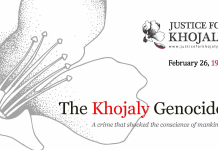Faysal Aziz Khan
In the ever-evolving landscape of Pakistan, a series of crucial political circumstances has woven a narrative, which reflects and challenges the nation’s democratic processes. These interconnected circumstances, encompassing the installation of a new caretaker government, the impending elections, the arrest of former prime minister Imran Khan, mounting concerns about human rights violations, and the persistent anticipation of a significant return, collectively form a complicated picture that demands a comprehensive analysis.
The appointment of Anwaar-ul-Haq Kakar as the caretaker prime minister marks a pivotal moment as the parliament elected in 2018 reaches its conclusion. Kakar’s nomination, a senator from the Balochistan Awami Party, has invoked both approval and scepticism from the public. However, it’s the opaqueness surrounding the selection process that casts a shadow over this transition of power. Questions inevitably arise about the transparency and fairness of the process, reminding us of the significance of a clear and inclusive selection mechanism that reinforces trust in democratic governance.
While the country gears up for upcoming elections, a pressing question emerges: How will the caretaker government navigate its role in ensuring a free and fair electoral process? Traditionally, the caretaker prime minister’s mandate is clear-cut – to oversee the elections and step aside. However, as the nation readies itself for this pivotal moment, potential delays pose a significant challenge to the democratic process. The Election Commission’s issuance of guidelines to interim governments serves as a reminder of the need to uphold the rule of law during these times. While these guidelines aim to establish an even playing field, they also raise a critical query: Is the state fully equipped to ensure an electoral process that is not only fair but also transparent? In a democracy like Pakistan, where the legitimacy of governance hinges on credible elections that faithfully express the people’s will, addressing these uncertainties promptly becomes a necessity. The caretaker government’s role, therefore, is not just about overseeing elections but also about safeguarding the essence of democracy itself.
The appointment of Anwaar-ul-Haq Kakar as the caretaker prime minister marks a pivotal moment as the parliament elected in 2018 reaches its conclusion.
Recent events, however, cast a spotlight on the delicate equilibrium between upholding the rule of law and protecting individual rights. As a key opposition figure, Imran Khan is currently in jail before the elections, his supporters are grappling with the difficult job of finding a path forward. Many dedicated party members have been detained since May, but despite these challenges, the Pakistan Tehreek-e-Insaf (PTI) party continues to display political activity. Pakistan’s political landscape has witnessed remarkable comebacks before, and Khan’s potential resurgence cannot be dismissed. While predicting a PTI sweep in the elections may be premature, the party has the opportunity to leverage the discontent among its base stemming from Khan’s imprisonment and the broader dissatisfaction with the government’s performance. If harnessed effectively, this sentiment could translate into significant electoral gains. However, the path to success is not without challenges.
In this intricate web of circumstances, the role of the caretaker government becomes pivotal. Not only must it oversee elections, but it must also work diligently to create an environment where the democratic process can unfold unhindered.
Concurrently, the anticipation of Nawaz Sharif’s return adds a layer of complexity to the ongoing democratic discourse. The shifting deadlines and inconsistent claims about his return reflect a disconnect between the PML-N leadership and its base of supporters. This incongruence raises pertinent questions about accountability, transparency, and the commitment of political leaders to uphold democratic values. The absence of a definitive timeline for Sharif’s return further underscores the intricate interplay between political leadership, legal proceedings, and democratic expectations.
At the core of these events lies a set of overarching questions that demand introspection and action. How can Pakistan institute a transparent and participatory process for selecting caretaker governments, thereby enhancing public trust and confidence in the democratic process? How can the state ensure the timely and credible conduct of elections, especially in the face of potential delays, to preserve the essence of democratic representation? In the pursuit of justice, how can legal proceedings be conducted while simultaneously safeguarding the human rights of individuals, and ensuring adherence to democratic norms? Moreover, how can political leaders bridge the gap between their decisions and the expectations of the electorate, effectively embodying democratic principles and accountability?
The convergence of these challenges at this juncture underscores the critical nature of the decisions that Pakistan must make. The outcomes of these events will undoubtedly shape the trajectory of Pakistan’s democratic journey. A steadfast commitment to transparency, accountability, and the protection of democratic values is essential to navigating these challenges successfully.
As Pakistan grapples with these interconnected dynamics, it stands at a crossroads that demands resolute action and a collective dedication to preserving and strengthening its democratic foundation. The threads of these events are woven into the fabric of the nation’s future, and the choices made today will determine whether the democratic tapestry remains vibrant and resilient or frays under the weight of uncertainty. The ultimate test lies not just in weathering the challenges, but in emerging stronger, more transparent, and more inclusive on the other side. Only then can Pakistan’s democratic spirit truly flourish and guide the nation toward a prosperous future.

















